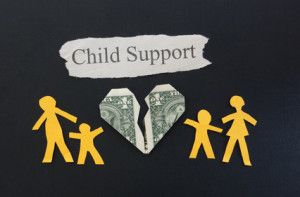 The Child Support Standards Act (CSSA) imposes a legal obligation on parents to support their children until they are emancipated. This is defined to be the age of 21, unless they demonstrate that they can meet their own needs prior to that age or have “special needs” in which event the age is extended until 26.
The Child Support Standards Act (CSSA) imposes a legal obligation on parents to support their children until they are emancipated. This is defined to be the age of 21, unless they demonstrate that they can meet their own needs prior to that age or have “special needs” in which event the age is extended until 26.
The statue provides an income-based formula for determining the “presumptively correct” amount of child support. Although you are not required to follow this law, if you are not following it, you must explain how what you are doing meets the reasonable needs of your children. I have included the specific factors that a court is required to use to deviate from the CSSA at the end of this Law Summary.
Income, in the CSSA, is defined to mean the income you either reported or should have reported on your most recent tax return. This would include investment income, deferred income, workers’ compensation, disability benefits, unemployment insurance benefits, social security benefits, veteran’s benefits, pensions and retirement benefits, fellowships and stipends, annuity payments, and alimony or maintenance received or to be received by the other spouse.
Once the income of each parent is confirmed, and any deductions applied, the “presumptively correct” amount of child support is determined by applying the appropriate percentage found in the CSSA. The percentages found in the CSSA are 17% for one child, 25% for two, 29% for three, 31% for four and 35% for five or more children.
Each parent’s share is then determined by applying their pro rata share of the income to the presumptively correct amount. Once that is done the “non-custodial” parent pays their share of the child support to the “custodial” parent, who is then responsible for using those funds to help meet the needs of the children.
While the statute does not define “custody”, the courts have ruled that the parent that has the children for more than 50 percent of the time is to be considered the “custodial” parent for the purposes of child support. Further, if you have an equal parenting arrangement, the courts have ruled that the parent with the greater income would pay child support to the other, although not necessarily the full CSSA amount.
We will do these calculations with you during the mediation sessions so you can each see what the “presumptively correct” amount of child support would be if the CSSA were applied to your income.
If the “non-custodial” parent is not going to pay their share of the basic child support amount to the “custodial” parent, you must explain why in your agreement. This is referred to as a deviation from the CSSA which is based upon 10 statutory factors.
The law allows a parent to modify child support if there is a substantial change in circumstances, such as an involuntary loss of employment, or a significant increase or decrease in the income of either parent. Child support can also be modified if there is a change in custody or upon the emancipation of each child.
Child support is designed to cover the costs of providing food, clothing, and shelter for your children. It does not cover the cost of health insurance, non-covered medical expenses, or childcare costs. Under the CSSA, parents share these costs on a pro rata basis.
Child support also does not generally include the cost of sports, extracurricular activities, lessons, gifts, cells phones, car expenses and similar expenses.
Share with Friends:
Need More Information?
To schedule a free phone or video consultation, complete and submit the form below, email us at [email protected], or call 518-529-5900.





